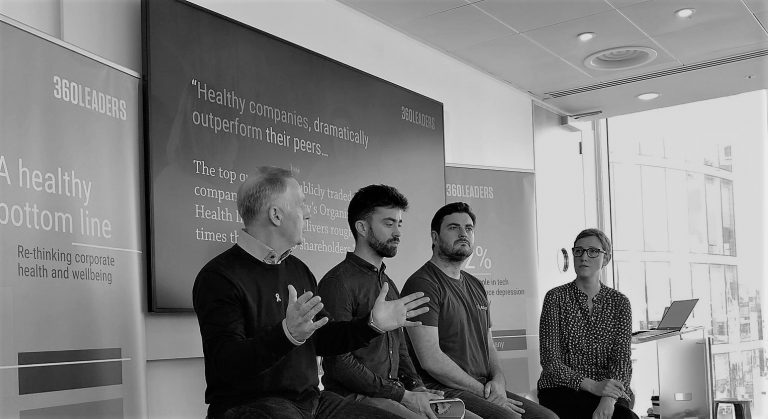From an early age, we are led to believe that the most successful leaders are invincible. For every question, they have an answer. Within every discipline, they boast unrivalled prowess and unlimited expertise.
With this in mind, it’s not difficult to see why so many entrepreneurs take on the role of the infallible leader when scaling up their business. Conventional wisdom holds that it is difficult to make demands from a position of weakness – by the same logic, vulnerability is considered a liability for CEOs. They see the likes of Mark Zuckerberg and Elon Musk as masters-of-all who have everything figured out; they fear that blind spots in their own knowledge will be perceived as a barrier to the success of the company.
In reality, they couldn’t be further from the truth – after all, even the best leaders are not without flaws. Just like all of us, CEOs have emotional and physical vulnerabilities that come with being human. Yet, we all know leaders who refuse to admit weakness and micromanagers who fear to take a single finger off the wheel will lead to failure. Inevitably, they learn the hard way that invulnerability is not only unattainable but a guise that can harm the growth of their business.
The positives of peer-to-peer sharing
Whenever 360Leaders hold a CEO Academy event, we generally find attendees are initially reluctant to share feelings of anxiety or to open up about the challenges they face. Yet, by connecting with other founders through our workshop, leaders are able to learn from the success stories and mistakes of people in similar situations.
“Tech gurus, inspirational visionaries and industry leaders started on the path to greatness not by pretending to know it all but by knowing themselves first and foremost.”
Many admitted that they felt like they were often experiencing a near-death experience in letting the team and the investors down. It’s a relief to hear someone admit they’re not perfect; it allows them to share their similar experiences. In doing so, they develop one of the most powerful qualities a leader can have: self-awareness.
Tech gurus, inspirational visionaries and industry leaders started on the path to greatness not by pretending to know it all but by knowing themselves first and foremost. A CEO should not be ashamed of their shortcomings, for there is power in vulnerability. The best leaders are those who see their unique weaknesses not as a stain on their reputation but as a signpost to the skills their business needs to succeed.
Having previously been deeply involved in operations, however, it can be difficult for a founder to transition to the role of a strategic leader. Over-exertion is common as founders try to be the jack-of-all-trades instead of finding talented people they trust to aid them in their mission. In their attempt to juggle the duties of many roles at once, entrepreneurs inadvertently make themselves less resilient, sacrificing their health and wellbeing to accomplish a seemingly never-ending to do list. The result is that the consciousness suffers and the natural leadership abilities they have, which helped them create the company in the first place, are replaced with a contagious anxiety.
“34 per cent of entrepreneurs–4 per cent points more than other workers–reported they were worried. A further 45 per cent of entrepreneurs said they were stressed, 3 per cent more than other workers.”
Complicating matters further, many fail to get the right diet or enough sleep every night. This will naturally trigger emotional vulnerability from any leader; any feelings of stress will likely be amplified and have a domino effect on productivity. This is reflected in findings from the latest Gallup-Healthways Well-Being Index, which revealed 34 per cent of entrepreneurs–4 per cent points more than other workers–reported they were worried. A further 45 per cent of entrepreneurs said they were stressed, 3 per cent more than other workers.
Perhaps more worryingly, Researchers from the University of California found that 72% of entrepreneurs surveyed self-reported mental health concerns. And about 49% disclosed deal with ADD, ADHD, bipolar disorder, addiction, depression or anxiety. These figures were described as “significantly higher” than non-entrepreneurs.
Building a team of supporting players
Rather than running themselves and their business into the ground, leaders would be wise to recognise that managing every aspect singlehandedly comes at the cost of long-term strategy. The CEO may be the captain of the ship, but you can’t run a ship by yourself. Ultimately, the role of a CEO is not to be a superstar, but to attract a team of superstars into senior management roles that they can rely on to help steer the ship in the right direction. Trusting the team might be a risk, but the alternative is detracting the talent you invested so much to find in the first place.
You need not be an expert in every field or immune to exhaustion, anxiety or stress to achieve talent magnet status. Customers, employees and investors today favour authentic CEOs – those who know who they are, when to ask for help and the true state of their business. If they are to succeed in attracting high-calibre candidates into C-level positions, chief executives must not only show passion in their vision but a willingness to identify their blind spots. True talent magnets know that people want to be needed.
When an entrepreneur has built their business from the ground up, relinquishing control isn’t easy. However, if you’ve hired a strong senior management team, you should trust them to source and secure the talent you need in each particular department – the CIO bringing in tech experts, the CMO employing experienced marketeers and the CFO hiring a strong finance team. Rather than attempting to oversee each and every project, a CEO should empower their team to manage the day-to-day running’s of the business while they focus on growth and attracting staff.
Vulnerability is the greatest strength
Vulnerability isn’t only a strategic tool to guide your hiring efforts, it’s also your secret weapon in increasing staff loyalty. Transparent leadership is the key to fostering a culture of trust and boosting employee engagement which in turn leads to performance.
For bestselling author and academic Brené Brown, vulnerability is a sign of strong leadership, after all ‘where perfectionism is rewarded and necessary, you can’t have [difficult] conversations. They’re not productive.”
Vulnerability isn’t only a strategic tool to guide your hiring efforts, it’s also your secret weapon in increasing staff loyalty.
Vulnerable leaders have no problem admitting they are not a jack of all trades; they leverage the expertise of their knowledge workers and do not hesitate to ask them for help where needed. By empowering these employees to have a hand in guiding the strategy, a leader engages them in the mission, cementing their value in the business and ultimately achieving a sense of ownership which is far more motivating than shares.
Only once a founder has accepted that they do not have to be perfect all the time, will they be able to ask for help without it impacting on their confidence. Rather than attempting to be “Superman in a suit” or an “AI Business Leader Bot”, founders should embrace the vulnerabilities that make them human. It takes courage to lead with emotional honesty, but the sooner you identify your blind spots, the faster you can start filling your business with the best and brightest talent in the market.



